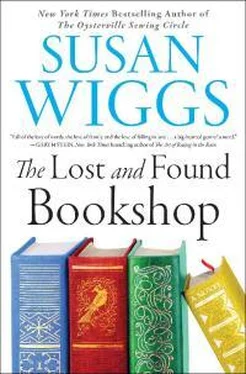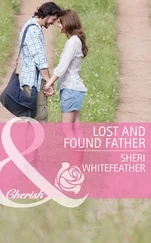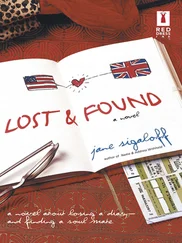When the boys fell ill and succumbed, I was too broken inside to rage against the fates that took them. Da drifted in and out of fever dreams and at the last, he looked at me and called me by name, and said I was a treasure and may the world treat me with kindness. As the roaring ocean swallowed him up, I was not merely broken inside but utterly hollow, as if everything had been scooped out of me, leaving me an empty vessel.
Indeed there was a thought as I stood at the ship’s rail that I might follow them into the next world, the paradise promised in our catechism. A slide into the icy depths, a brief and brutal second baptism, followed by blessed oblivion.
In that moment, a vast nothingness offered more comfort and solace than existence alone in a strange new world. I cannot write of the sadness that tore into my very marrow, my own dear family forever gone. Never again will I feel the brush of Mam’s hand on my cheek, or hear Da whistling through his teeth as he sharpens his cutter for the day’s work. Never to hear the boys squabbling and laughing.
In the city of New York, a Good Samaritan guided me to the railroad station, and I used the tickets provided by the Red Branch. The journey across this vast and frightening land lasted for days. While on board, I had the good fortune to meet Miss Josie Mendoza, who has a boardinghouse in the city of San Francisco. As she cannot read or write well, she asked for help with her papers and with reading the news of the day.
People wonder why I, born in a dirt-floored bothy with nary a prayer of coming up in the world, came to know my reading and letters and fine drawing. That I owe to the Wentworth family. Their daughter Annabelle was sickly and craved my companionship, and they indulged her every whim. At Annabelle’s side I learned to read and write, to draw and play the piano. I was afforded every advantage—except, of course, the privileges of her family’s wealth.
Mam was suspicious of allowing me to learn matters above my station, but the squire’s lady assured her that it was the Lord’s work I was doing, befriending a sick girl who was desperate for companionship. I considered it a blessing from on high when Mam allowed it.
The tutor was a miracle, nothing less in my eyes. The housemaids whispered that M. Hugo had been expelled from a post with the Belgian royal family, because he was guilty of something referred to as “the French vice” and sent to the west of Ireland to be exiled.
He had an extraordinary gift, and I learned to read the great books of the ages, and to write with a fine hand. But the greatest gift of all was the drawing. He had been trained at the Académie Royale des Beaux-Arts and shared those lessons with me.
I absorbed the principles of drawing and composition, but any skill I might have, I owe to the natural world around me. In every spare moment I practiced. I drew the things of nature, leaves and berries, shore grasses and nuts and long fronds of fern. I drew a curlew perched at the end of a pier, and a cormorant with wings outstretched to catch the breeze.
Drawing is a way to make sense of the world in my heart and mind. I speak through my drawing and sometimes I discover my own feelings that were hidden from me.
Eventually I told Miss Josie of my plan to find my way to a church and beg for help.
She burst out with a big brassy laugh and said as how the church might save my eternal soul, but what I needed was food in my belly and a place to lay my head.
Natalie paused in her reading so she and her grandfather could look through the young girl’s work. “Colleen was remarkable,” Natalie said. “Her writing and her drawing. This is amazing.”
Several pages were filled with sketches, presumably of the voyage that had been a time of staggering grief for Colleen. The most sophisticated drawings showed birds in flight or hovering over the ship’s rigging, and flying fish skimming across the surface of the ocean.
Another page depicted a row of somber faces—swift-stroked line drawings of a woman in a shawl, two young boys, a man hunkered over a coil of rope.
“Her parents and brothers,” said Grandy. “Our family history seems written in loss.”
“And survival,” said Natalie, returning to the narrative.
Never have I seen the likes of this strange new place. It is both frightening and fascinating. There are people from the Orient—Celestials, they are called—in a world of their own known as Chinatown. There are people speaking Spanish and playing music in the streets. Soldiers at a military station roam the neighborhood at night, drinking and looking for women. I have taken to wearing trousers and boots, my hair clubbed like a boy’s.
Miss Josie’s saloon is a raucous place, as wild and confusing as the portside bustle. It is in fact a fancy-house, which is what they call a brothel in these parts. Miss Josie pays me nothing. For my tiny cave in the cellar and scraps to eat, I work from dawn until dark. I undertake all manner of chores. The laundry and mending. The chamber pots. I sometimes work in the kitchen, but the cook is from China and I cannot understand what he’s saying and he scolds all the time, clucking and shooing like a wet hen.
In between the scrubbing and the laundry, I am charged with taking the rubbish to the bins at the bottom of Fenton Hill, where the refuse is barged out to sea. An execrable task, yet in the wake of sending my entire dead family into eternity one by one, the harshness of all else is muted. In fact, I discovered a nearby field and shore teeming with birds and wild-growing plant life. The renewal of springtime renewed my soul. From the depths of winter, the world is made all over again. With my drawing, I capture these moments to remind myself that I must go on.
For half a day on Sunday, I’m given leave to attend Mass. And though I may burn in the fires of eternity for my sin—I never go. Instead I take myself out to the wild fresh air and I draw. In my mean circumstances, I make do with discarded paper and charcoal pencil, losing myself as I create images of the world around me.
Most passersby pay me little notice, but one day I met a man named Billy who lingered to watch me draw. I had tired of reading the Examiner, a tedious compilation of the news of the day. I had spied an interesting pair of mallard ducks and was making sketches directly on the newsprint. The bold strokes of my charcoal obscured the columns of print as I created the scene. The stranger asked me why I covered the printed news with my sketch, and, blunt as a paddle, I admitted as how the facts and statistics struck me as tiresome. The newspaper was better suited to drawing than to reading.
He guffawed and slapped his knee, declaring my review more honest than his entire editorial board. “Oh no,” he said, “I am the owner of this paper and I aim to make it thrive. What would keep your interest, then?”
I had never met a person of such import. I confessed that I am more drawn to stories of dramatic human struggles, humorous poems, or the sharp and brilliant writings that bring the world to life in the mind’s eye.
“I must cater to the reader,” he declared. “Not to sophisticates and historians.”
After this unusual exchange, our Sunday meetings have become a regular occurrence. He is exceedingly generous, giving me all manner of books to read, and supplies for making art. He proudly tells me of the talented writers he now publishes—Mr. Ambrose Bierce and Mark Twain.
And then one day, a surprise. Billy is leaving San Francisco for good. He came to the saloon to say farewell. The presence of this fancy gentleman created a stir, and he brought with him a magnificent gift—a set of books so large that a servant or footman carried them to my humble room in Miss Josie’s basement. The large parcel contained a complete set of engravings of America’s birds by Mr. John James Audubon. The volumes stand an arm’s length high! The sheer beauty of the work took my breath away—herons and swans and egrets with graciously curving necks, songbirds in flight, shore fowl in their habitat.
Читать дальше












